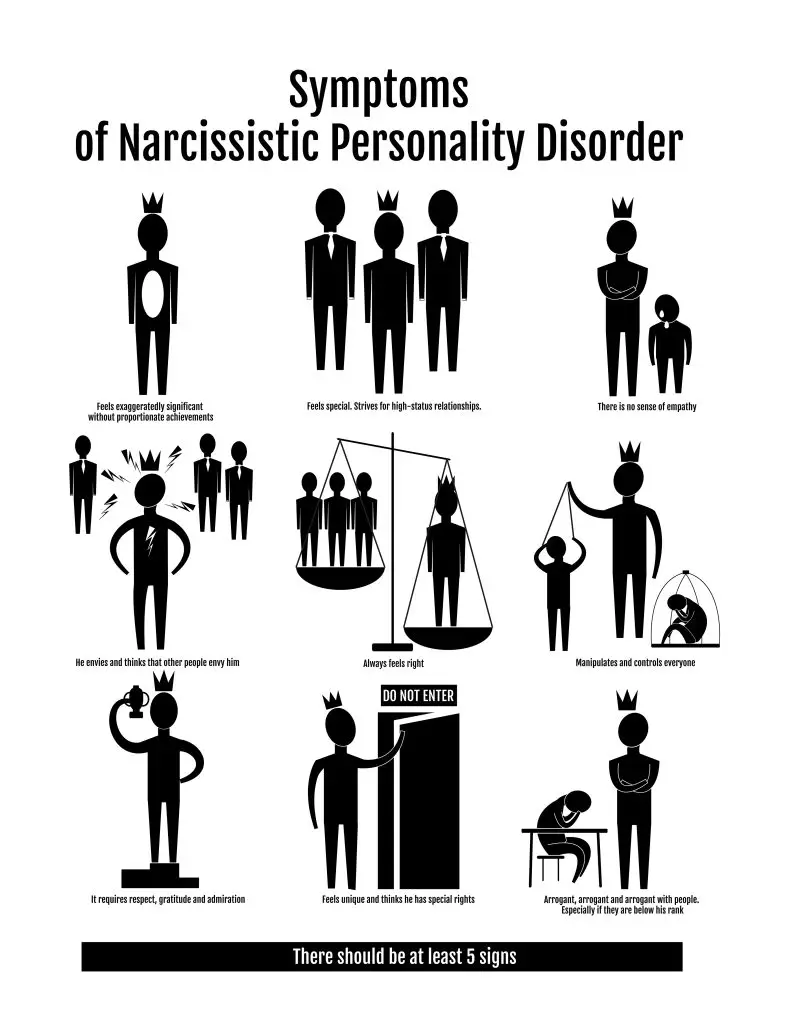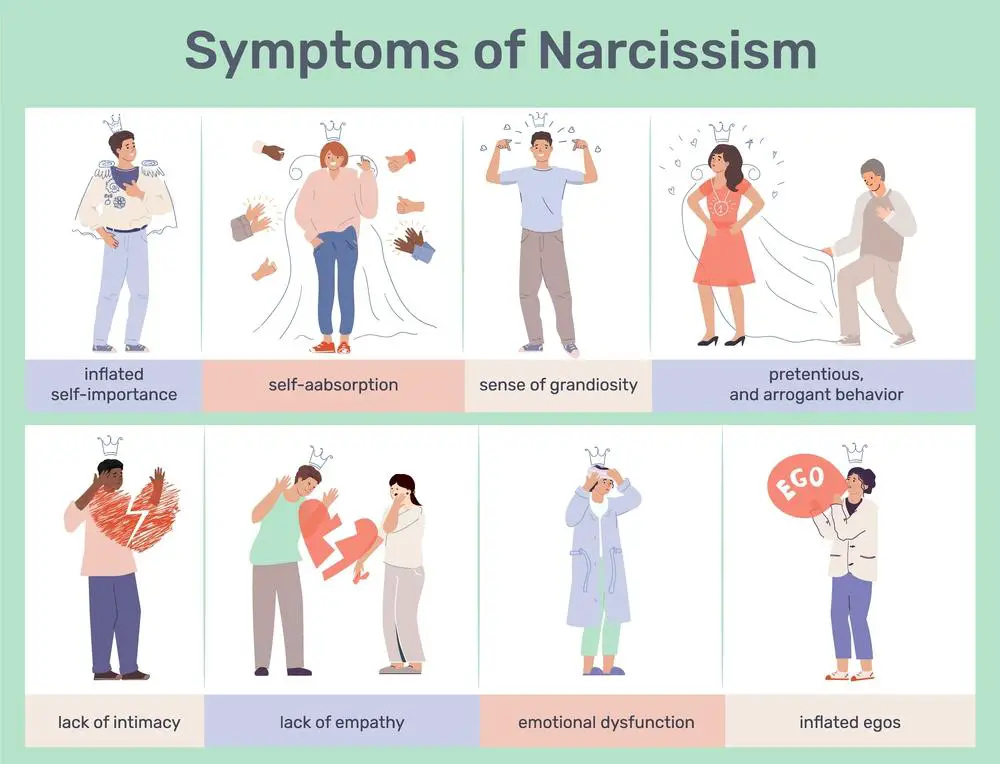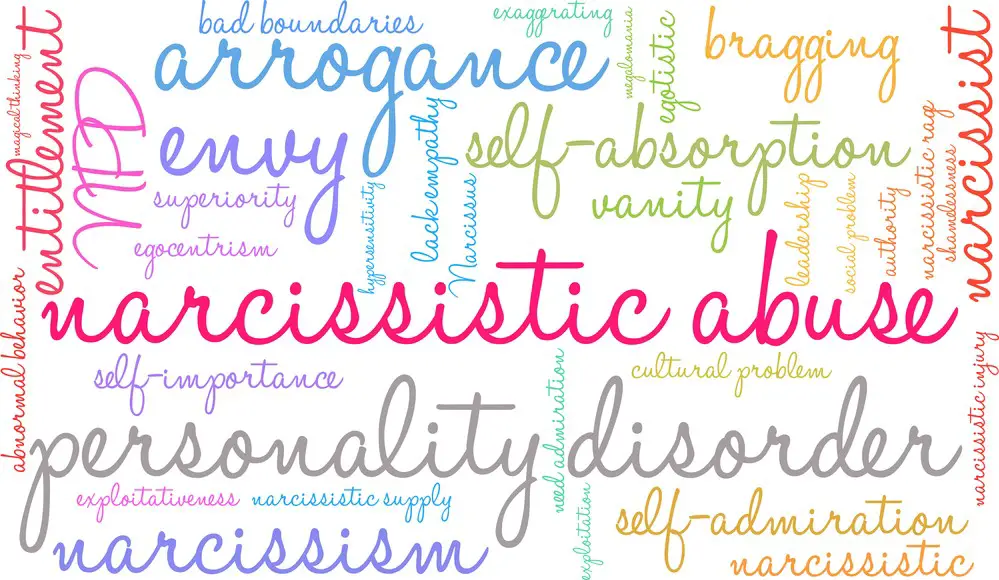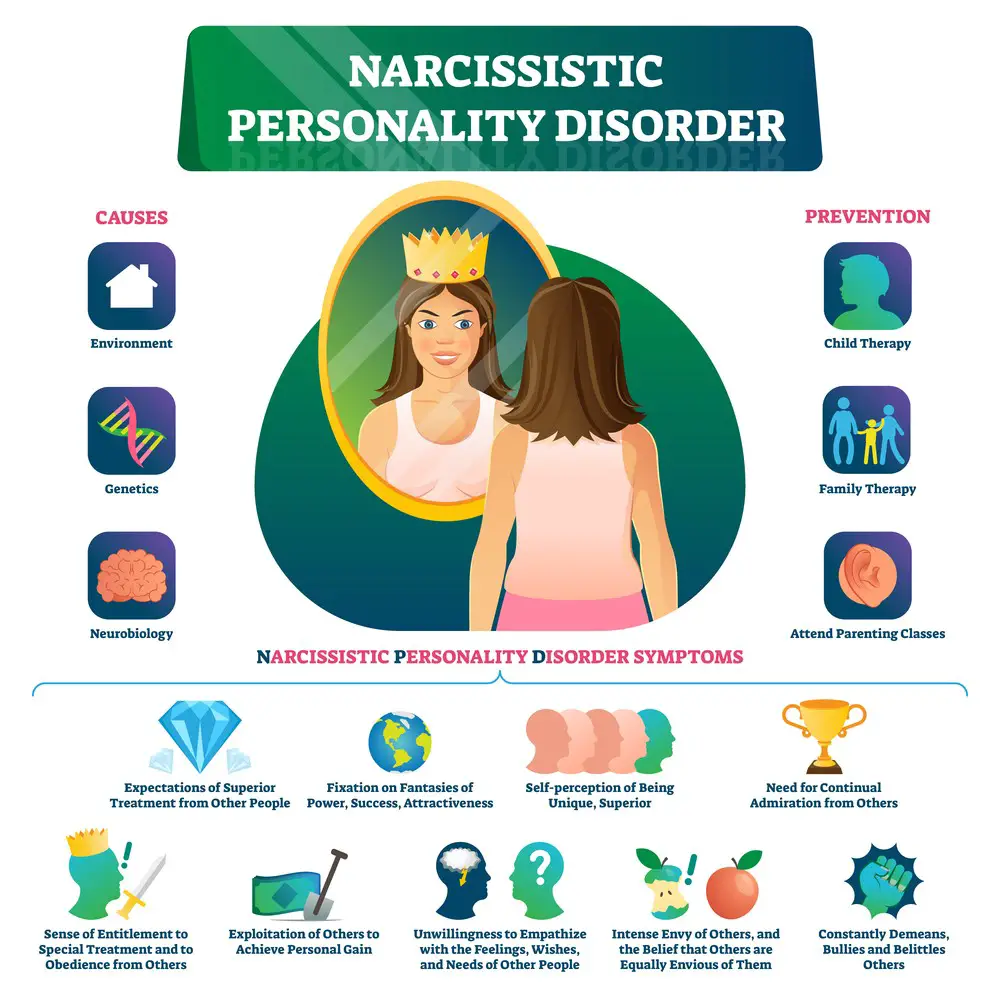Navigating the waters of a relationship with a narcissist can feel like you’re sailing in a storm without a compass. It’s tricky, often exhausting, and can leave you second-guessing every move. But hey, before you don that lifejacket, let’s have some real talk about what it’s like to deal with a narcissist and how you can keep your head above water.
You know the type: they love the spotlight, thrive on admiration, and seem to have a self-esteem as fragile as a house of cards. You might be dealing with one at work, in your family, or in your social circle. And while we can’t change them (frustrating, I know), we can arm ourselves with strategies to minimize their impact on our lives.
So, here’s the lowdown on what we’ll unpack in this post:
- Understanding Their Moves: We’ll get into the nitty-gritty of a narcissist’s playbook. Spoiler alert: it’s not you. It’s them.
- Self-Preservation Tactics: Learn how to protect your mental space and keep cool when they’re turning up the heat.
- Communication Dos and Don’ts: I’ll share some tips on how to talk to a narcissist without losing your mind or your dignity.
- Boundaries Are Your Best Friend: We’ll discuss why setting firm boundaries isn’t just a “nice-to-have”; it’s necessary.
Remember, this isn’t about manipulation or winning some emotional chess game. It’s about understanding the dynamics at play and navigating them smartly. So, let’s dive in and figure out how you can keep your sanity intact while dealing with a narcissist. Buckle up—it’s going to be an exciting ride.
 Understanding Narcissistic Personality Disorder
Understanding Narcissistic Personality Disorder
Before we delve into strategies for handling narcissistic relationships, it’s essential to understand what narcissism entails. Narcissism is a personality trait characterized by an inflated ego, a grandiose sense of self-importance, a need for excessive admiration, and a lack of empathy for others. To navigate relationships with narcissists, it’s crucial to grasp the underlying traits and behaviors that define this personality type so that you can beat them at your own game.
Defining Narcissism
Narcissistic manipulation traits entail a range of behaviors and thought patterns, including fragile egos, that can manifest in various other ways to manipulate others. Individuals with narcissistic traits often display an exaggerated sense of self-importance and a preoccupation with their own needs and desires. They may constantly seek attention, admiration, and validation while showing little empathy for others. Common behaviors associated with narcissism include a need for constant praise, a sense of entitlement, manipulation, and an inability to accept criticism.

Types of Narcissism
Narcissism isn’t a one-size-fits-all personality type. There are different types of narcissism, each with its own set of characteristics. Two prevalent forms are grandiose narcissism and vulnerable narcissism.
Grandiose Narcissism
This type of narcissism is characterized by an inflated self-image, an obsession with power and success, manipulative tendencies and a tendency to be domineering in relationships. Individuals with grandiose narcissism often exhibit a lack of empathy and may exploit others to achieve their benefit and goals.
Vulnerable Narcissism
is marked by fragile self-esteem, hypersensitivity to criticism, and a constant need for reassurance. These individuals may appear shy or introverted but can be equally self-centered and manipulative.
Understanding the spectrum of narcissistic traits is crucial because not all narcissists fit neatly into one category. Most narcissistic individuals exhibit a mix of traits, and their behavior may change over time and depending on the context.
 Recognizing Narcissistic Relationships
Recognizing Narcissistic Relationships
Now that we’ve established what narcissism is, let’s delve into how to recognize them. Being able to identify the signs and red flags of a narcissistic relationship is the first step in dealing with these complex dynamics.
Signs of a Narcissistic Relationship
Excessive Self-Centeredness
In such a relationship, one partner’s needs, desires, and concerns consistently take precedence over the other’s.
Manipulation and Control
Narcissists may use manipulation and control tactics to maintain dominance and manipulate others in the relationship. This manipulation tactic can manifest as gaslighting, emotional blackmail, or other forms of emotional abuse.
Lack of Empathy
Narcissists often struggle to understand or validate their partner’s feelings and may be dismissive of their emotional needs.

Emotional Rollercoaster
The relationship may follow a pattern of idealization, devaluation, and discard. In the beginning, the narcissist idealizes their partner, making them feel special and loved. However, this idealization phase is often short-lived, leading to devaluation and emotional turmoil.
Frequent Conflicts
These are often characterized by frequent conflicts and misunderstandings due to the narcissist’s inability to empathize and communicate effectively.
Impact on the Affected Individuals
Being in a narcissistic relationship can have a profound emotional and psychological toll on the individuals involved. Understanding the cycle of idealization, devaluation, and discard is crucial for navigating this rugged terrain.
Emotional and Psychological Toll
Individuals may experience a range of negative emotions, including anxiety, depression, and low self-esteem. The constant emotional rollercoaster can leave them feeling confused and unfulfilled.
The Cycle of Idealization, Devaluation, and Discard
They often follow a predictable cycle. The narcissist initially idealizes their partner, showering them with affection and admiration. However, this idealization is usually short-lived. Over time, the narcissist begins to devalue their partner, criticizing and degrading them. This phase can be emotionally devastating for romantic partners. Eventually, the narcissist may discard their partner, only to repeat the cycle with someone new.
Strategies for Dealing with Narcissists
Navigating such relationships in your personal or professional life requires a combination of strategies to protect your well-being and maintain your mental health condition and emotional stability.
Setting Boundaries
Establishing and enforcing healthy boundaries is essential when dealing with narcissists. These boundaries should protect your emotional well-being and ensure that you are not subjected to manipulation tactics or emotional abuse. Be clear about your limits and communicate them assertively.
The Importance of Self-Care and Personal Boundaries
Self-care is crucial in these situations. Prioritize your well-being and happiness. This may involve seeking therapy, practicing stress-reduction techniques, and engaging in activities that bring you joy and fulfillment. Personal boundaries are essential for safeguarding your mental disorders. Ensure that your boundaries are firm and non-negotiable.
Effective Communication
While communicating with narcissists can be challenging, some strategies can minimize conflict and misunderstandings.
Tips for Communicating with Narcissists
- Choose your battles wisely. Not every issue needs confrontation.
- Use “I” statements to express your feelings and concerns without blaming the narcissist.
- Set clear expectations for communication and behavior, and hold the narcissist accountable when they cross the line.
- Practice active listening to foster better understanding and empathy.
Assertiveness and Conflict Resolution Techniques
Developing assertiveness skills can help you maintain boundaries and express your needs without being overly aggressive or passive. Conflict resolution techniques, such as compromise and negotiation, can also be effective in managing conflicts with a narcissist.
Protecting Your Well-Being
In addition to setting boundaries and improving communication, protecting your well-being is paramount when dealing with narcissists.
 Self-Care and Support
Self-Care and Support
Prioritize self-care as a means of coping with the emotional toll. Engage in activities that promote self-perception, relaxation, and happiness, and seek emotional support from friends, family members, or professionals. Therapy and support groups can provide valuable outlets for processing your emotions and receiving guidance.
Leaving a Narcissistic Relationship
For some individuals, the best course of action may be to leave. This is a challenging and emotionally fraught decision, but it can ultimately lead a person to a healthier and happier life and make him feel good.
Guidance for Leaving a Narcissistic Relationship
– Seek support from a therapist or counselor to navigate the process.
– Create a safety plan if you fear for your physical safety when leaving the relationship.
– Consider finding a safe place to stay if needed.
– Cut ties with the narcissist, both physically and emotionally. When It’s More Than Just Rough Seas: Recognizing the Need for Therapy
When It’s More Than Just Rough Seas: Recognizing the Need for Therapy
Sometimes, dealing with a narcissist can leave you feeling like you’re constantly drowning. It’s tough, and it can take a toll on your mental health. Here’s when you might want to send out an SOS for therapy:
- Emotional Exhaustion: If you feel empty, it might be time to talk to a professional.
- Walking on Eggshells: If you’re constantly anxious about the next outburst or criticism, therapy can help you regain your footing.
- You’re Starting to Doubt Your Reality: Narcissists are masters of gaslighting. A therapist can be a lighthouse in the fog if you question your sanity.
Knowing When to Abandon Ship: Signs It’s Time to Leave
Not every relationship with a narcissist can—or should—be saved. Here’s how you know it’s time to cut ties and sail away:
- The Damage is Too Deep: When the hurt goes beyond what can be healed, prioritizing your well-being and leaving is okay.
- Lack of Respect: If your boundaries are repeatedly ignored, it’s a sign that the relationship isn’t healthy.
- Fear Over Love: When fear, obligation, or guilt are the only things keeping you in the relationship, it might be time to leave.
The Silver Lining: When a Relationship with a Narcissist Can Heal
It’s not all doom and gloom. In some cases, there’s hope for change. Here’s when a relationship with a narcissist could be salvageable:
- Willingness to Change: If the narcissist acknowledges their behavior and is genuinely willing to work on it, there’s a chance for improvement.
- Consistent Effort: Change doesn’t happen overnight. But it’s possible to see progress with consistent effort and professional help.
- Supportive Environment: A robust support system and boundaries can create a healthier dynamic for both parties.
Remember, it’s not about fixing someone. It’s about whether the relationship can evolve into a mutually respectful and healthy space. If there’s a commitment to change from both sides, the relationship could find its way to calmer waters with the right help and a lot of work.
 Navigating the Storm: Additional Tips and Strategies
Navigating the Storm: Additional Tips and Strategies
Dealing with a narcissist can be a challenging and often confusing journey. The strategies discussed earlier provide a foundation for handling these relationships. However, some additional tips and tactics can further aid you in navigating these turbulent waters. Here’s a deeper dive into some extra strategies to bolster your resilience:
- Documenting Interactions: Keep a record of interactions with the narcissist, especially in professional settings. This can be useful when you need to provide evidence of their behavior.
- Educate Yourself Further: Knowledge is power. Read books, watch documentaries, or attend workshops on narcissism. The more you understand their behavior, the better equipped you’ll be to handle it.
- Develop a Support Network: Surround yourself with people who understand what you’re going through. This network can include friends, family, or support groups for those who have dealt with narcissistic individuals.
- Learn De-escalation Techniques: Learn techniques to calm situations when they become heated. This includes knowing when to walk away from a confrontation to prevent escalation.
- Engage in Reflective Practice: Regularly take time to reflect on your interactions with the narcissist. Consider what went well, what didn’t, and how you might handle similar situations.
- Seek Professional Counseling: Even if you’re not in a romantic relationship with the narcissist, therapy can help you deal with the psychological impact of dealing with them.
- Plan for the Long Term: If the narcissist is a permanent fixture in your life (like a family member), plan how you’ll manage this relationship long-term, including setting consistent boundaries and strategies for minimal contact.
- Prioritize Your Happiness: Focus on activities and relationships that bring you joy and fulfillment. Engaging in hobbies, exercise, or social events can provide a necessary counterbalance to the stress of dealing with a narcissist.
- Limit Expectations: Understand that a narcissist may never fully acknowledge or change their behavior. Adjust your expectations to protect yourself from disappointment.
- Practice Mindfulness and Stress Management: Techniques such as meditation, yoga, and mindfulness can help you stay centered and calm in the face of selfish behavior.
- Educate Others: If appropriate, educate those around you (like coworkers) about narcissistic behaviors, especially if they also interact with the narcissist.
- Consider Legal Advice: In extreme cases, especially where there’s abuse or harassment, legal advice might be necessary to protect your rights and safety.
- Embrace Positivity: Focus on your life’s positive aspects and build your self-esteem and confidence. This inner strength will serve as an armor against the negative impact of a narcissist.
- Plan an Exit Strategy: Start planning if you’re considering leaving the relationship. This might involve financial planning, finding a place to live, or seeking legal advice.
Remember, dealing with a narcissist is often a marathon, not a sprint. Patience, resilience, and self-care are key in maintaining your well-being in such challenging relationships.
- Left Arm Pain and Anxiety: Understanding the Relationship - November 23, 2023
- Anxiety Paralysis: Coping with Overwhelming Stress - November 23, 2023
- Anxious vs. Nervous: Differentiating Emotions and Responses - November 15, 2023
This site contains affiliate links to products. We will receive a commission for purchases made through these links.


 Understanding Narcissistic Personality Disorder
Understanding Narcissistic Personality Disorder Recognizing Narcissistic Relationships
Recognizing Narcissistic Relationships Self-Care and Support
Self-Care and Support Navigating the Storm: Additional Tips and Strategies
Navigating the Storm: Additional Tips and Strategies

